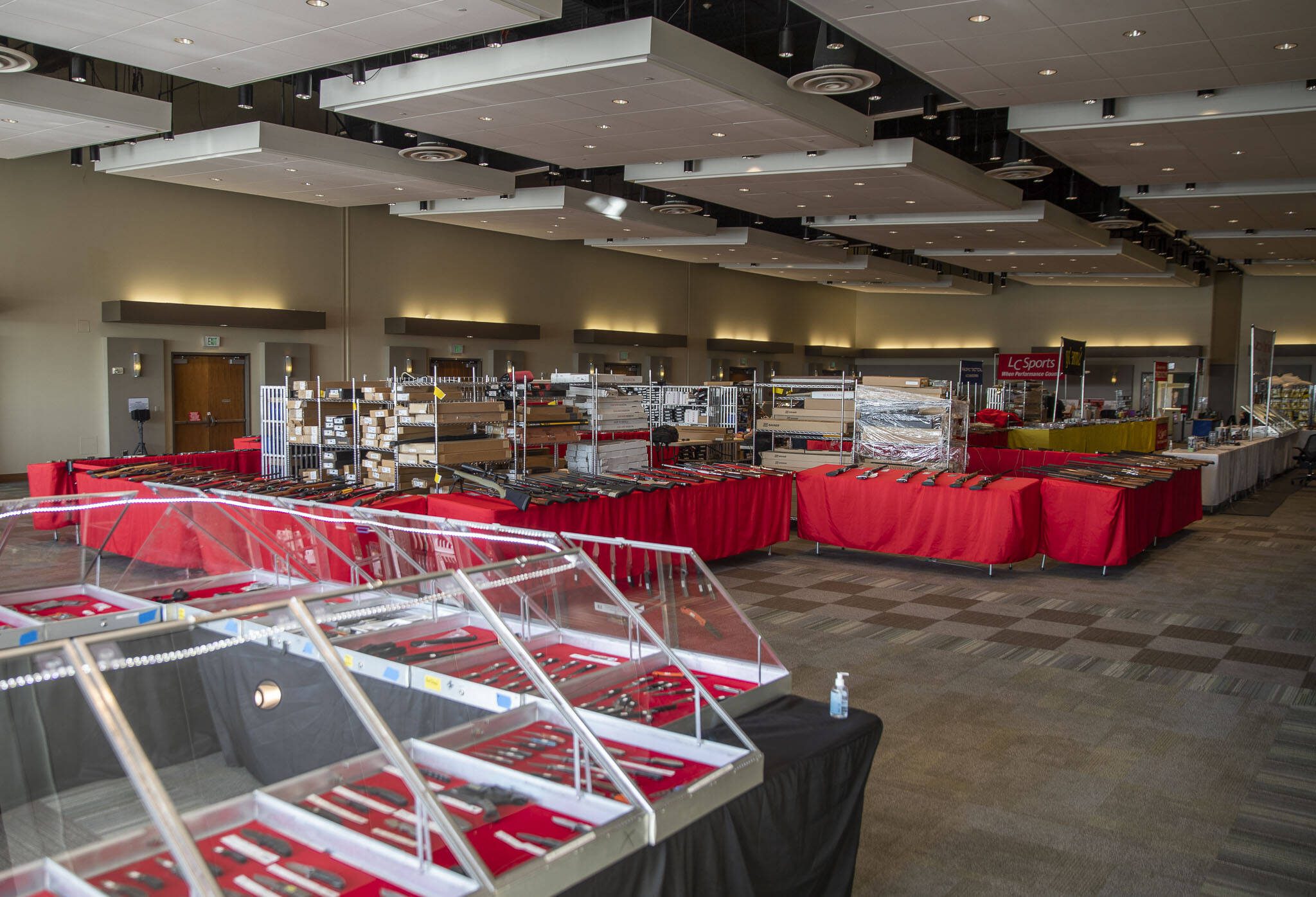EVERETT — An ammunition and firearm tax in Everett could be modeled after those already implemented in Seattle and Tacoma.
At the behest of the Everett City Council, staff have been crafting an ordinance that, if passed, would add a tax to sales of ammo and guns.
“Gun violence in our society is absolutely out of control,” Council President Brenda Stonecipher said in April.
At the time, Stonecipher asked the mayor’s office to evaluate and write an ordinance that would tax ammo and guns. Her request came after a rash of shootings in the city, including one that killed Everett officer Dan Rocha in March 2022 and another that hospitalized officer Chad House in March 2023.
The Angel of the Winds Arena’s conference center scheduled a two-day gun show March 18 and 19. The downtown Everett space hosted similar events before and since.
“I just find it very ironic and credulous that in the midst of the violent gun activity we’ve had in our city — we are still reeling from the death of officer Rocha and the shooting of officer House — and at the same time that the council is approving appropriations to buy back guns, the public facilities district board is approving permit or rental of our facility to have a gun sale,” Stonecipher said in April.
The arena is owned by the Everett Public Facilities District, a special taxing district formed by the city in 2002. The city regularly supports its budget.
Everett city staff based the tax draft on ordinances in place for years in Seattle and Tacoma, government affairs director Jennifer Gregerson told the council safe community committee Wednesday.
Seattle’s tax withstood a legal challenge and began in January 2016. Tacoma’s tax took effect in 2021.
Everett’s tax could be similar to both, with an initial idea of taxing $30 per firearm, 3 cents per round of .22-caliber or smaller and 5 cents per round for other ammunition sold at retail, Gregerson said.
There could be exemptions, such as for people selling only one firearm and less than 50 rounds of ammo per quarter.
Money collected from the tax would be put into a fund dedicated for research, firearm violence prevention and youth education, as well as for administering the fund, Gregerson said.
City staff were still evaluating what the impact for businesses could be, she said.
A Seattle gun shop owner said he was moving his businesses to avoid paying the tax shortly after it took effect in 2016, The Seattle Times reported. The tax in its first year generated under $200,000 in revenue, between $100,000 and $300,000 less than initial estimates, according to The Times.
A Tacoma-based firearm parts manufacturer expanded its production with a facility in nearby Lakewood reportedly because its leadership opposed the city’s tax.
Ben Watanabe: 425-339-3037; bwatanabe@heraldnet.com; Twitter: @benwatanabe.
Talk to us
> Give us your news tips.
> Send us a letter to the editor.
> More Herald contact information.

























